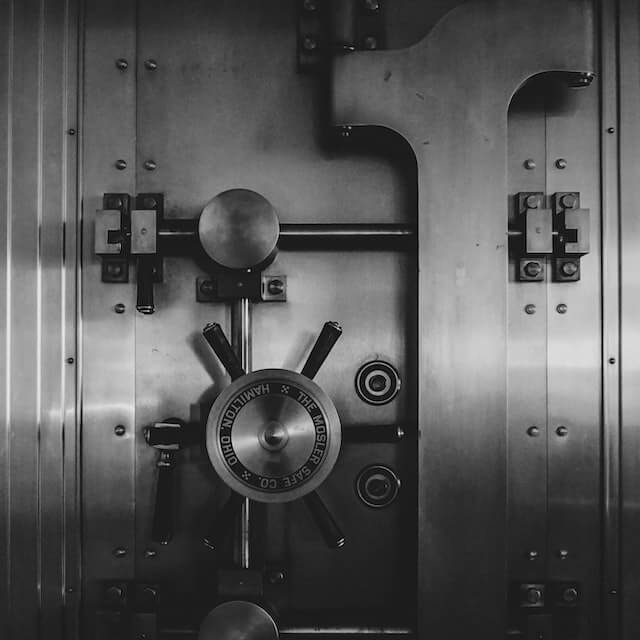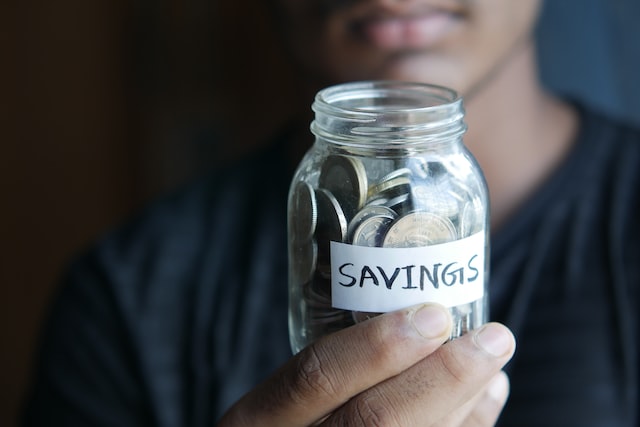What Age Should I Start Saving?
I remember the difficulties my family and I had since I was a child…
Unfortunately the saving / investing / wealth-building culture was pretty well-known but little practiced in my family unit.
We suffered hard times when the agency my father was working in closed. And even more came as he had to move to Libya to working for an Italian construction contractor…
They started paying salaries only after dozens of complaints from our side, forcing us to survive for months on plain bread and chicken breast…
Nonetheless, you can live like that and still put money aside. I have done it personally and seen other families doing that.
So what’s the key here?
In general, there are various sources on the web that reiterate the concept that you should start saving as soon as possible. Even in your teens if you have some kind of earnings or your parents give you periodically some cash.
But in all reality, I always saw the best results from people who made their purpose the driver of their saving strategies. No matter their age or social status. Like in all things in our lives, if you have a big WHY, then you are going to find the way in one way or another.
Bottom line: Your age then remains important, but not absolutely crucial to the end results you are after.
Saving Money Definition
At what age should I start saving for retirement?
At what age should i start saving for a house?
We are saving money when we allocate a fixed or variable chunk of our earnings (from any source) aside without spending it for the time being. Then the use of this money is deferred to a future time.
Or the sum is just stored aside to provide prompt cash to face unexpected expenses of any kind. (in case the “cash in the house is not sufficient”).

This is just a strict attempt to defineThe concept of “saving”. The activities and plannings involved in a solid saving strategy can be very complex.
For instance the money saved could be invested in financial assets as well as a business venture,
Or something simpler like buying a home, a car, a vacation or numerous other goods.
“Saving For the Future Must Start at a Young Age”…
This is the adage you will most often find if you start googling the subject or asking for suggestions from adult friends or members of your family.
I disagree, and I invite you to do the same…
Again, the focus has to be on the purpose of saving money. Only then we will focus on the mechanics of accomplishing it.
A much better strategy is to make crystal clear to yourself :
- 1. What your financial goals are
- 2. Why do you want to achieve them, what they will bring to you
- 3. (analyzing from the previous point) Do you want them bad enough?
- 4. When will be the deadline to achieve them
| Define your own Goals and Expectations first… |
With this set of insights, you will be in the correct position to plan how to manage your earnings.
= meet your expectations by the time you established for yourself.
This is a way better strategy as opposed to the old:
“set aside a xyz% in a separate bank account every month”.
Since you are emotionally involved in the process, it will motivate you even more in staying on the path whatever can happen along the way.
What Age is Best to Start Saving?
Now, let´s move on from what was discussed in the previous paragraph. It is logical that, all other variables staying the same, the sooner you start the sooner you are going to see results.
In other words, there is no better time to start moving than RIGHT NOW! Even if it “just” means putting your “what”s and your “why?”s in black and white on a piece of paper.
A quick word for any parent, since I am one myself :
| Swallow your concerns in silence and push your kids to find solutions to earn some bucks on their own. |
(Yes, you can help supplying some ideas, but only after some time, say a couple of weeks of brainstorming and trying solutions on their own).
Offer a Reward

A great idea is to offer to match yourself any income they will generate without help from the family, assuming it is legal, not harming people, animals or things in the process, nor generating some strange consequences for you to care for later😆.
(I mean nothing catastrophic here…as a silly example: your kids decide to bake some cake and then sell them in slices for a profit. At the end you come back in the kitchen to find that you now need a new oven.
Wait, the walls have to be painted again too…got the picture, don’t you?).
This way they will be motivated even more to find ways to generate more money, since the results will be doubled without further effort from their side. Clever!
Then allow them to spend some independently (let them do it, it is important!) and help them to place the rest in a savings account or even better in a solid investment plan.
You are doing them an invaluable service : help them understand the basic mechanics of money that even many adults do not have down yet.
What is a Good Amount to Have in Savings?
This is a question I see constantly showing up on the net…
and it demonstrates how the vast majority of us have no clue about managing their money wisely.
Unfortunately, much of the informations available are often so antiquate or generic that can do very little to better the situation.
A reasonable point to start is to assess your current situation:
if you are at the end of your teens, live with your family and are not responsible for other than yourself, then you can afford to have even cents in your savings account.
This assumes that the bulk of your money went in building your future (studying, experimenting on various businesses, building skills), and some left in entertainment.

Then a family comes in the picture…
You are in your 20s, are married with no children, and both of you are employed.
You should at least have enough set aside to cover some month of expenses.
(say 3 to 6, but the more the better).
Another bucket will go for big future projects (a house, a new car, a baby). This one has to be topped regularly every month with a percentage of your income.
And another one with “play money” to enjoy and feed your “inner child” inside (more on that in coming articles).
If you have passed your 30s, have a family and kids, and maybe your wife can contribute only if your children are now old enough to go to school, then your emergency savings should have grown to 12+ months of family expenses, the big-projects-bucket working its purpose regularly (maybe is time for a family vacation?), and the “play money” one also still surviving despite the bigger and bigger lack of time you and your wife are getting used to experience… (by the way, welcome in the Club! 😀).
You get the idea : you can quickly evaluate your own situation by quickly calculating how many months you and your family could live on savings alone without the need of other streams of income.
How much cash is too much in savings?
I started answering this question in another post, trying to encourage you think out of the box …
But to recap as quickly and simply as possible :
- You are saving too much if you do not account for various visible and hidden costs you pay for the mere reason to have money aside, both in a bank and under your bed.
- You are saving too much if you do not allow yourself to build a better future by using some of that money to explore and experiment further with your skills and/or your passions, finding ways to produce further wealth for you.
- You are saving too much if you not allow yourself to use a part of your wealth to regenerate and have fun. Soon your inner child will be crying out loud to have its share in the game…
Better to put money in the bank or keep the cash?

Though putting money in a bank is not the smartest choice, it is better than nothing…
I would advise to only keep the cash if no other form of payment is disposable for a purchase, the bank is defaulting or the whole country is defaulting or started a war😬😬😬.
That said, it is reasonable to keep large sums in a bank only if you are still learning to invest or at the designing stages of your business.
Though the money sitting in your bank account is somehow safer than in your home, you will still suffer from loss of buying power from taxes, commissions and inflation.
The solution? Let your money work for you, even if you only gain small percentages it will add over time and mitigate, if not outperform, your losses (=INVEST!).
Too late to start saving?
There really isn’t an age where it is too late to start saving. Maybe you won’t benefit from compound interest that much in the end but hey, let’s be real, everybody needs money to go on in our “civilized world”…

A time will come when we will be too old for the job market also if still in good health and with tons of experience under our belt.
Our social security annuity could be not enough for our lifestyle…
And that could be the moment where our savings come in handy to let us maintain our consuetudes without a need for support from anyone.
Or maybe everything is going fine and you do not have much to complain about your actual status. Wouldn’t be great to gift your wife that dream cruise you’ve fantasized about together so many times?
Remember that money is energy : use it smartly to maximize your experience while journeying in this world.
Read more : Are you still a slave to Procrastination? Follow the link to find out how to get rid of that and other annoyances!
Conclusion
It was an interesting topic, wasn’t it? 😊
In this article, we discussed extensively the role your age plays, when related to saving money.
Starting from a definition of saving, we expanded in a search for a more modern answer to the question.
We debated in detail the popular concept of starting to save money at a young age as opposed to more synergic strategies…
We want a deeper emotional connection with the purposes of our saving activities.
The emotional connction with the “WHY” will have us enduring motivation for far better results in the end.

- We established an easy and functional system to evaluate the amount of your savings from time to time.
- We provided also some examples from various age groups and relationship situations.
- We touched briefly on the risks of having too much in savings (yes, this risk exists…). And examined the pro and cons of keeping cash by yourself as opposed to depositing it in a bank account.
- Lastly, to round things up, we added some thoughts about the underlying importance of treating money like energy to carry us successfully in this journey we call life.
So, start saving money now, no matter your age. But no saving will do you any good if you still do not know what is important for yourself personally.
You see, money can buy you lots of things, but cannot decide for you what to buy…you have to.
So, as I always say, in your best interest, HAVE A PLAN!
If you have any questions, or just want to contribute with your own experiences and insights, by any means write them all in the comments. Thanks!






